Faith Life & Learning and Teaching News
Curriculum Updates in English, Mathematics, Faith, Discovery & Inquiry

Faith Life & Learning and Teaching News
Curriculum Updates in English, Mathematics, Faith, Discovery & Inquiry
Prayer Leaders

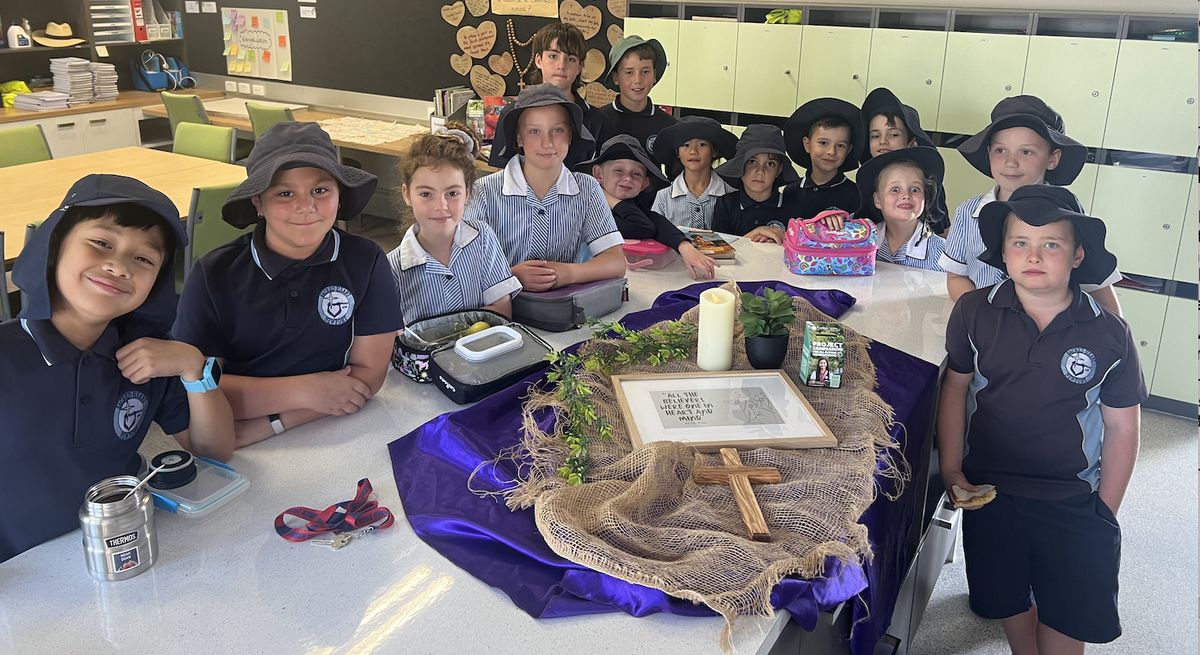
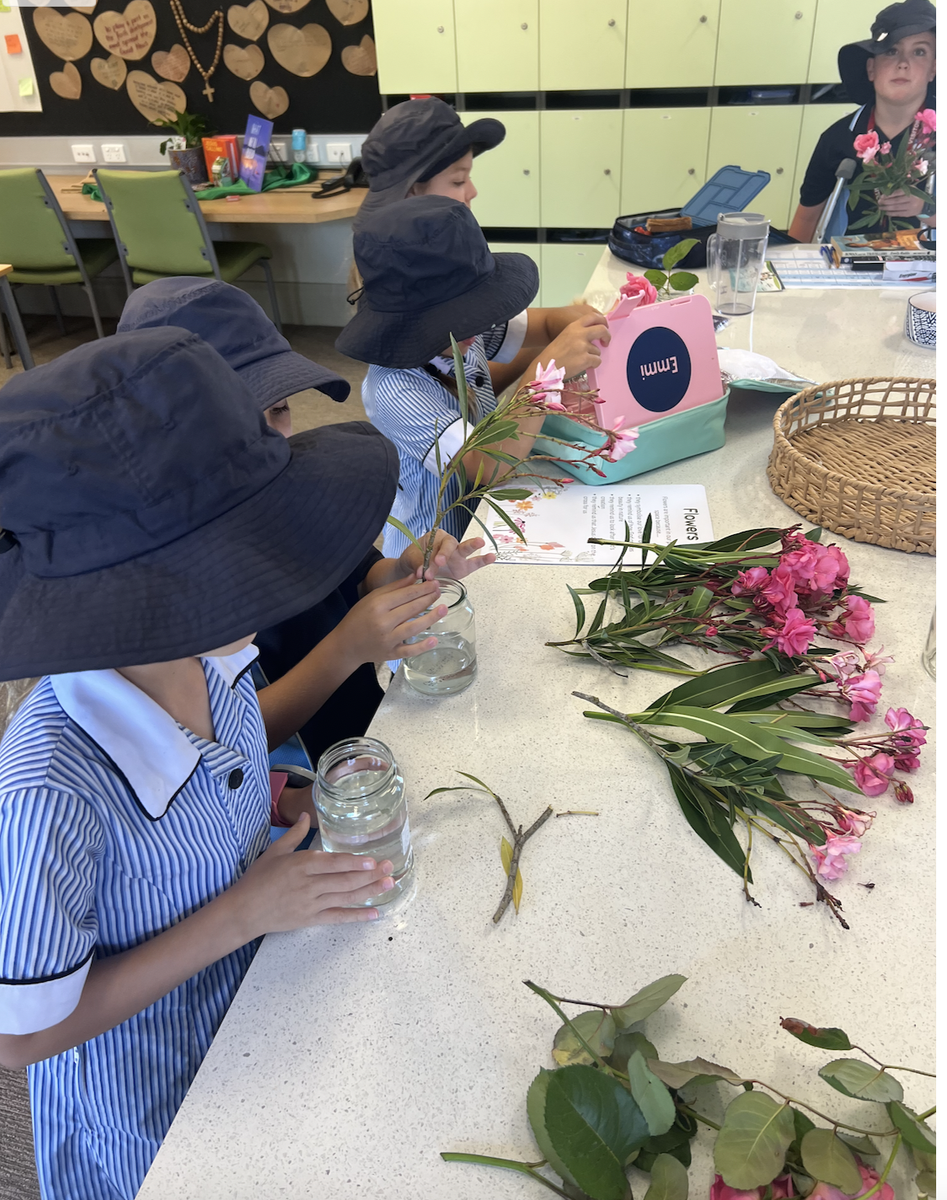
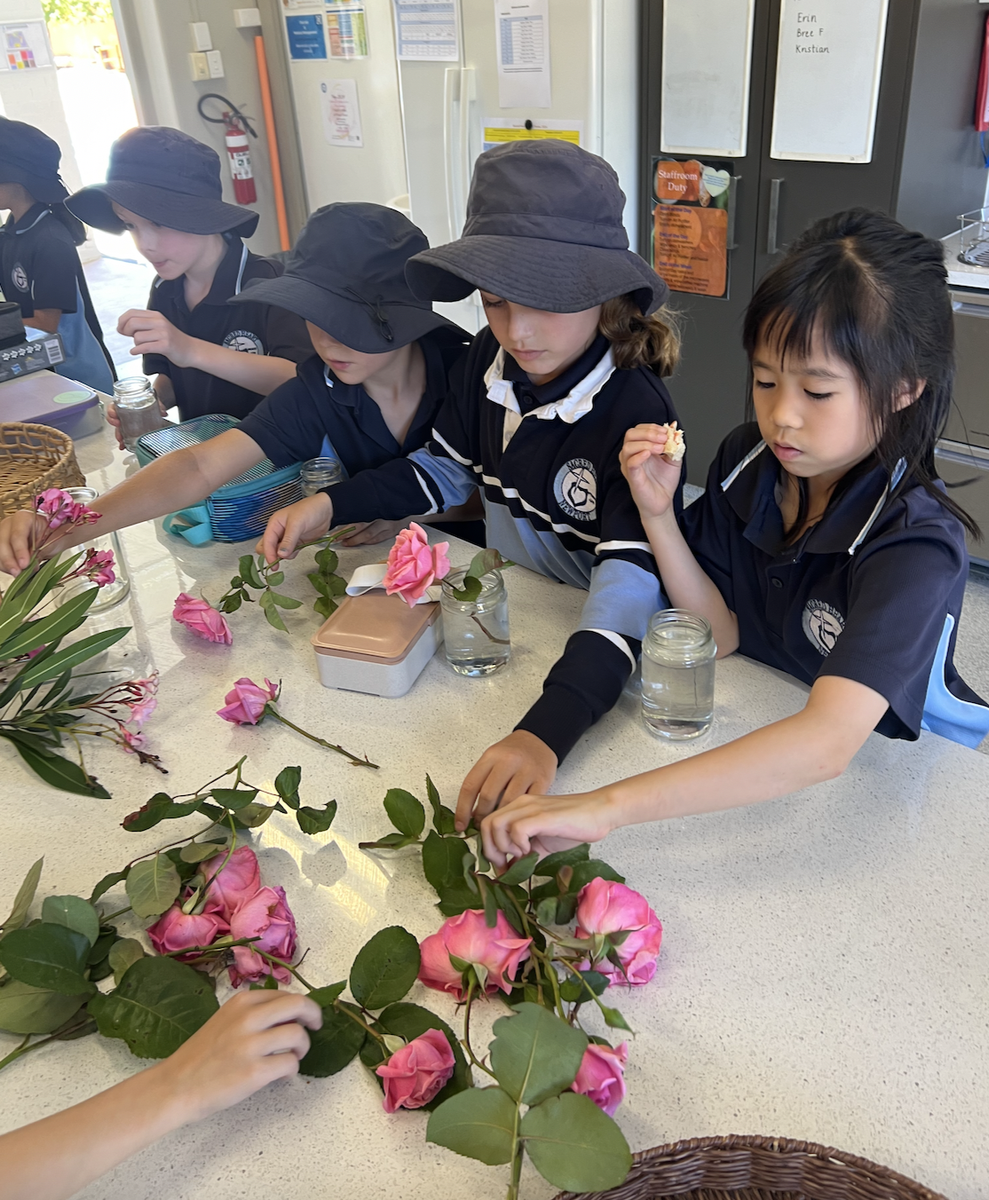
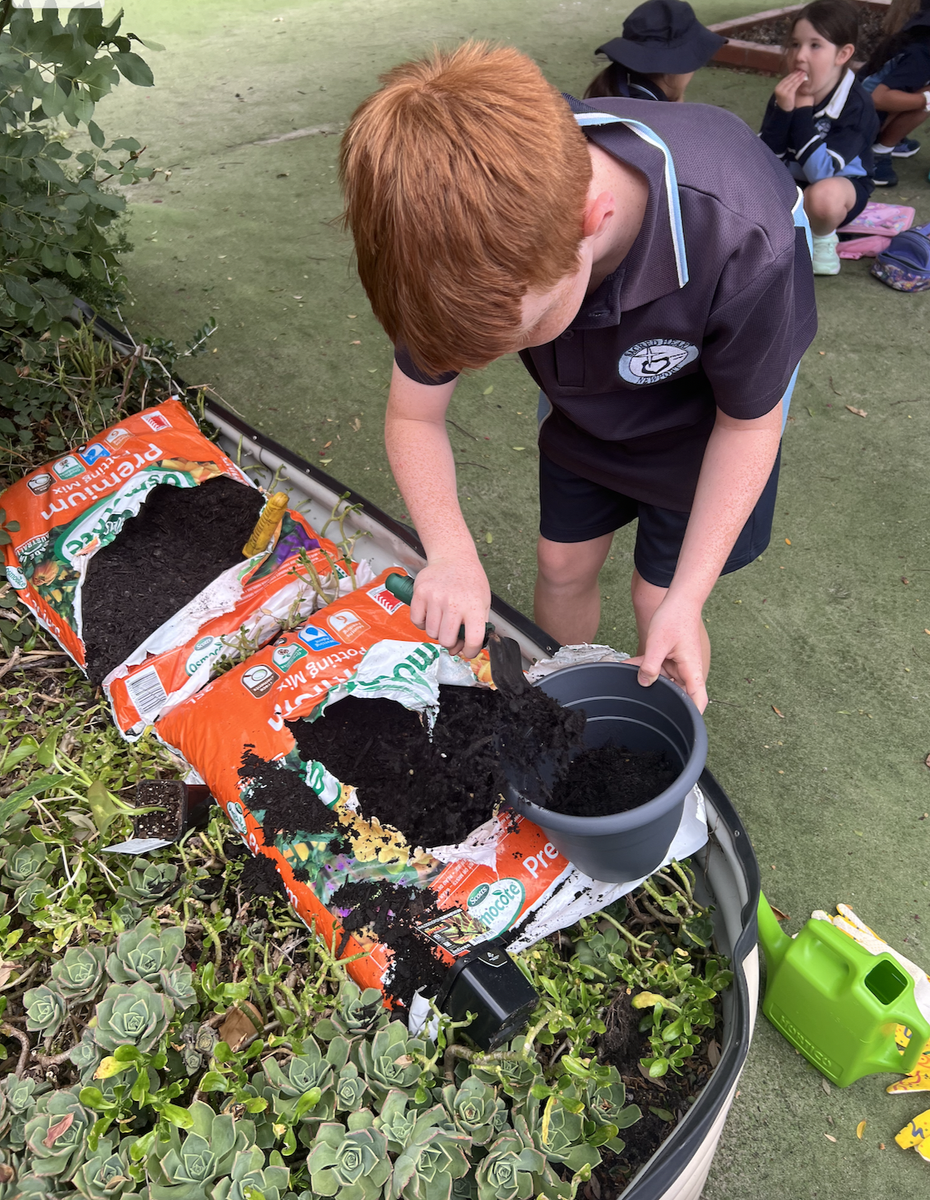







Through our Religious Education program, children develop an understanding of what it means to be Catholic. We teach our Catholic traditions including Religious Education, Prayer and Worship, Social Justice, Community Service and Sacramental Preparation.
Our classrooms contain visible signs of our faith and traditions, including a prayer space. This year we have introduced the role of a prayer leader in each classroom. A prayer leader plays an important role in fostering the religious and spiritual atmosphere of the learning environment. All students take turns in taking on this role throughout the year. Our Prayer leaders are supported by the Religious Education Leader each week.
The prayer leaders role includes
So far the students have enjoyed meeting each week, learning about new elements of prayer and sharing them with their class.
Project Compassion Launch
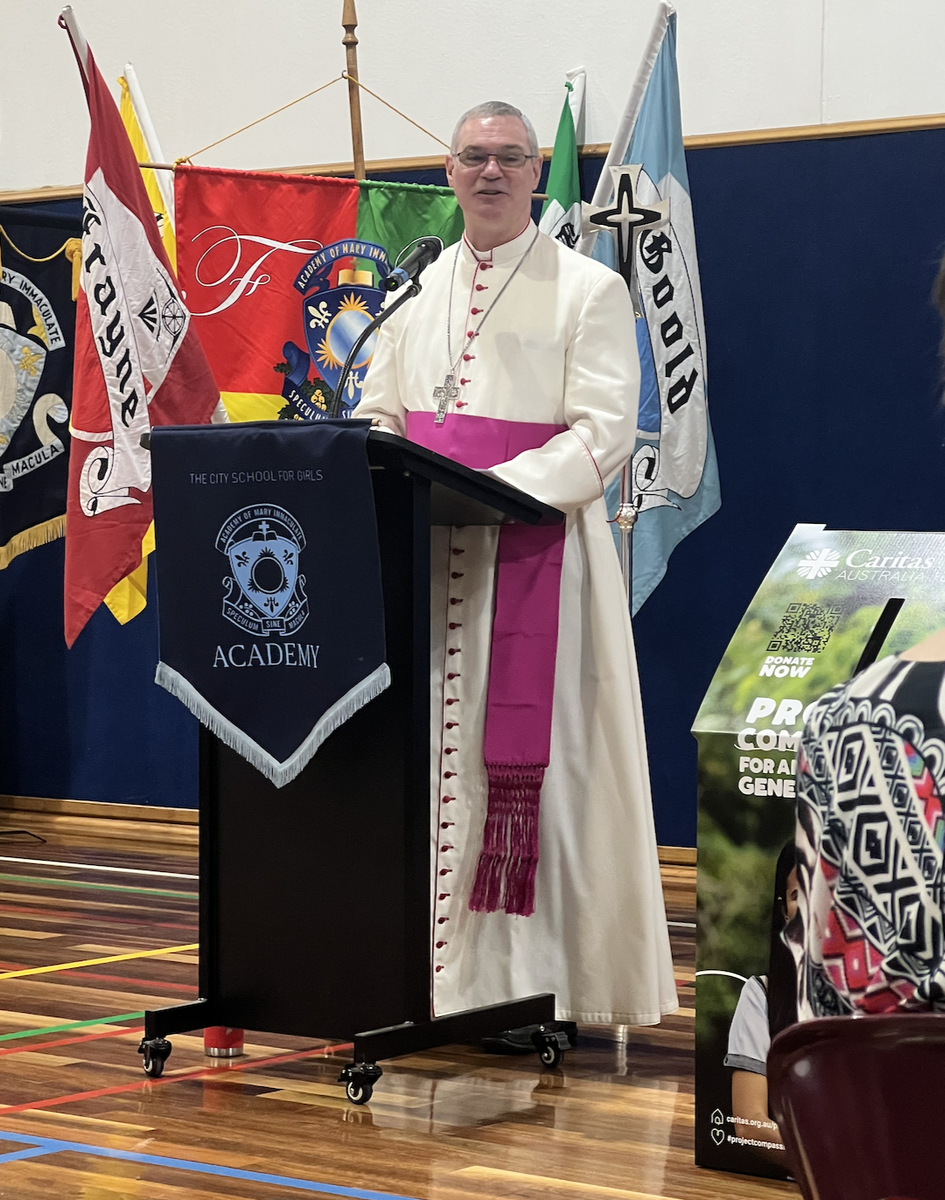
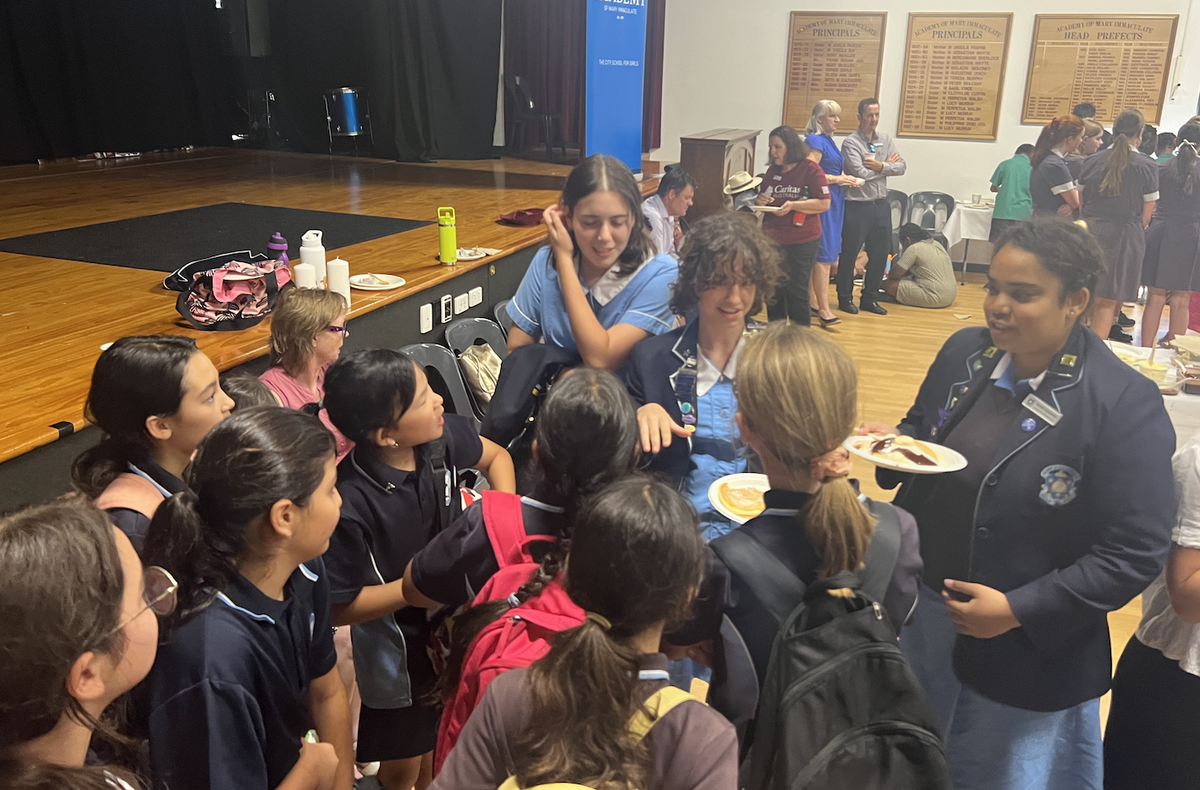


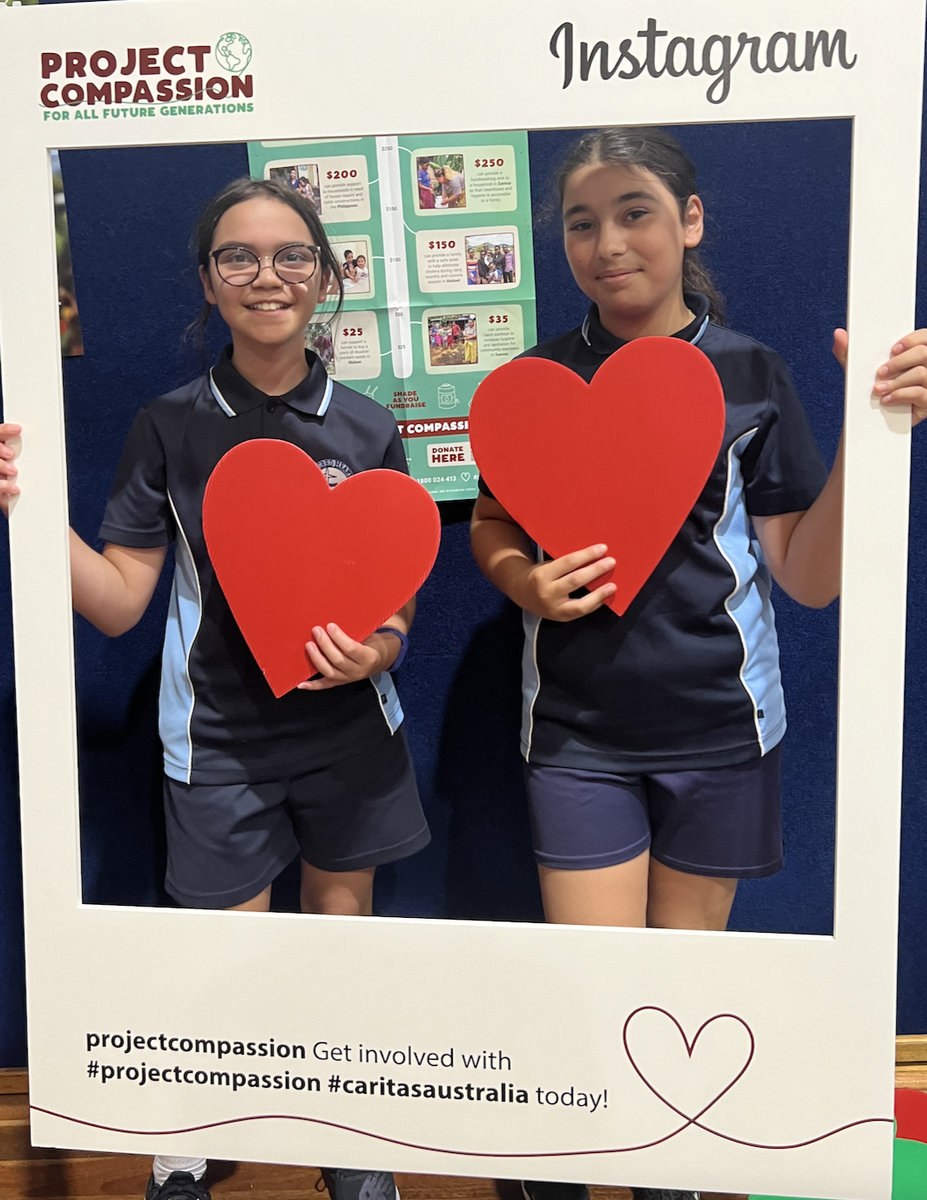
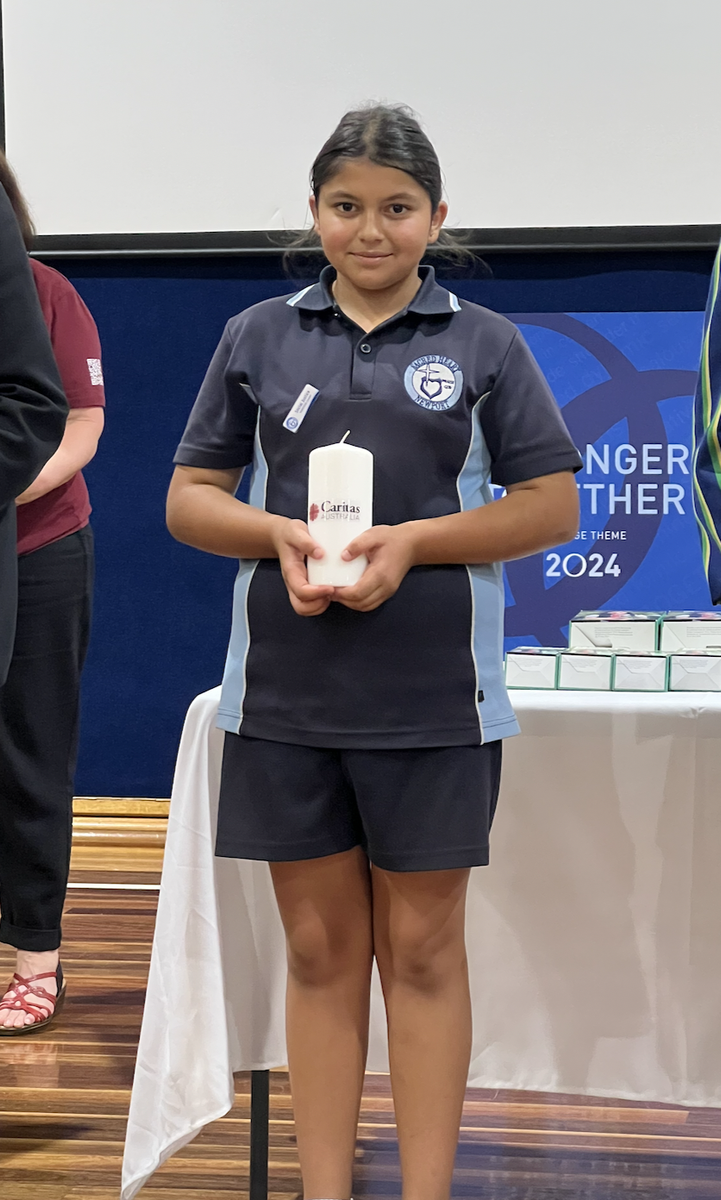
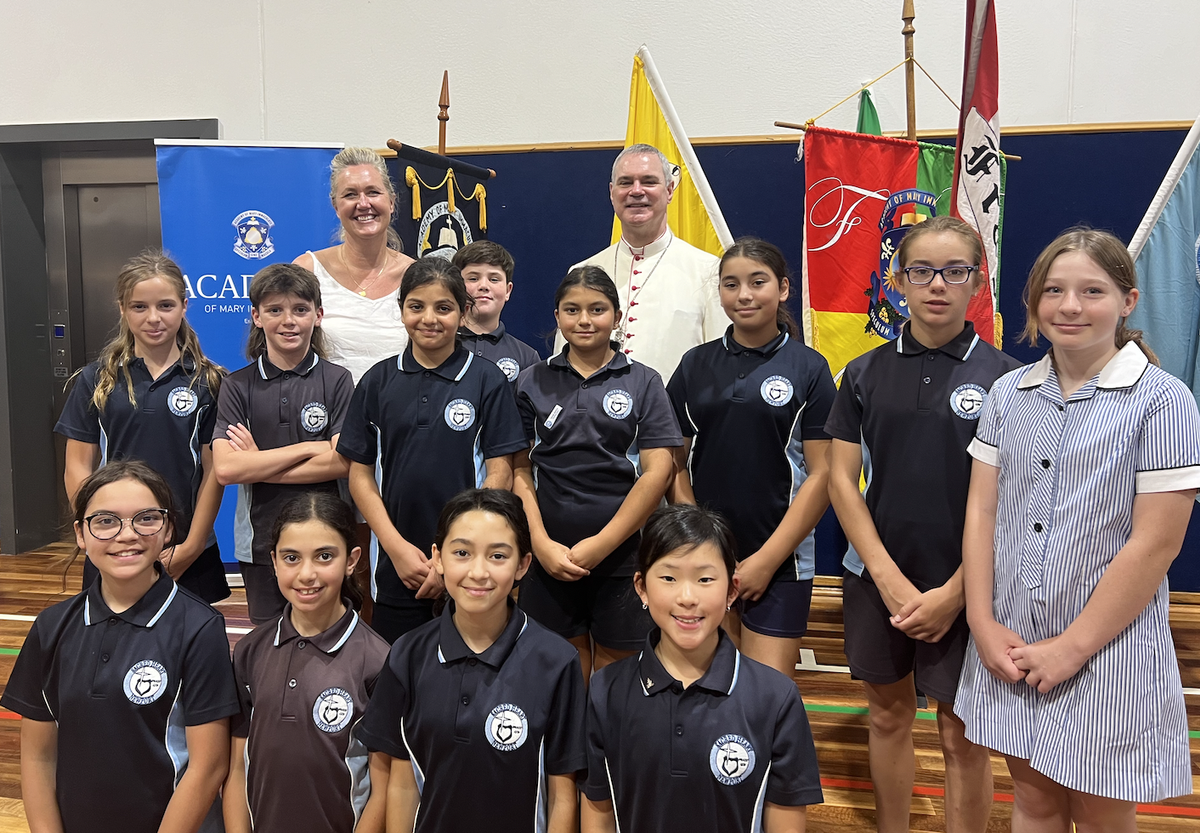









Caritas Australia invited our Social Justice students to the launch of Project Compassion 2024, its annual Lenten fundraising and awareness-raising appeal. For each of the six weeks of Lent, thousands of Australians come together in solidarity to help end poverty, promote justice and uphold dignity.
Caritas Australia helps over 1 million people in Australia and overseas every year - walking hand-in-hand with those in crisis.
This year, the theme is ‘For All Future Generations’. This theme has been drawn from the story of the burning bush in Exodus 3:1-20.
One day, Moses’s sheep wander off and he suddenly encounters a bush that is burning but not consumed. God tells Moses that he has heard the cry of his people. God responds to injustice and chooses Moses to speak to Pharaoh. Moses is scared but God promises ‘I will be with you.’ All the time, God remains a mystery. Moses wants more detail, so God simply says that this is the same God who has been longing for justice for the whole of history: ‘By this name I shall be invoked for all future generations.’
As God called Moses, so now God calls us to work ‘for all future generations.’
Nyah Harb, our Social Justice leader shares her day with you...
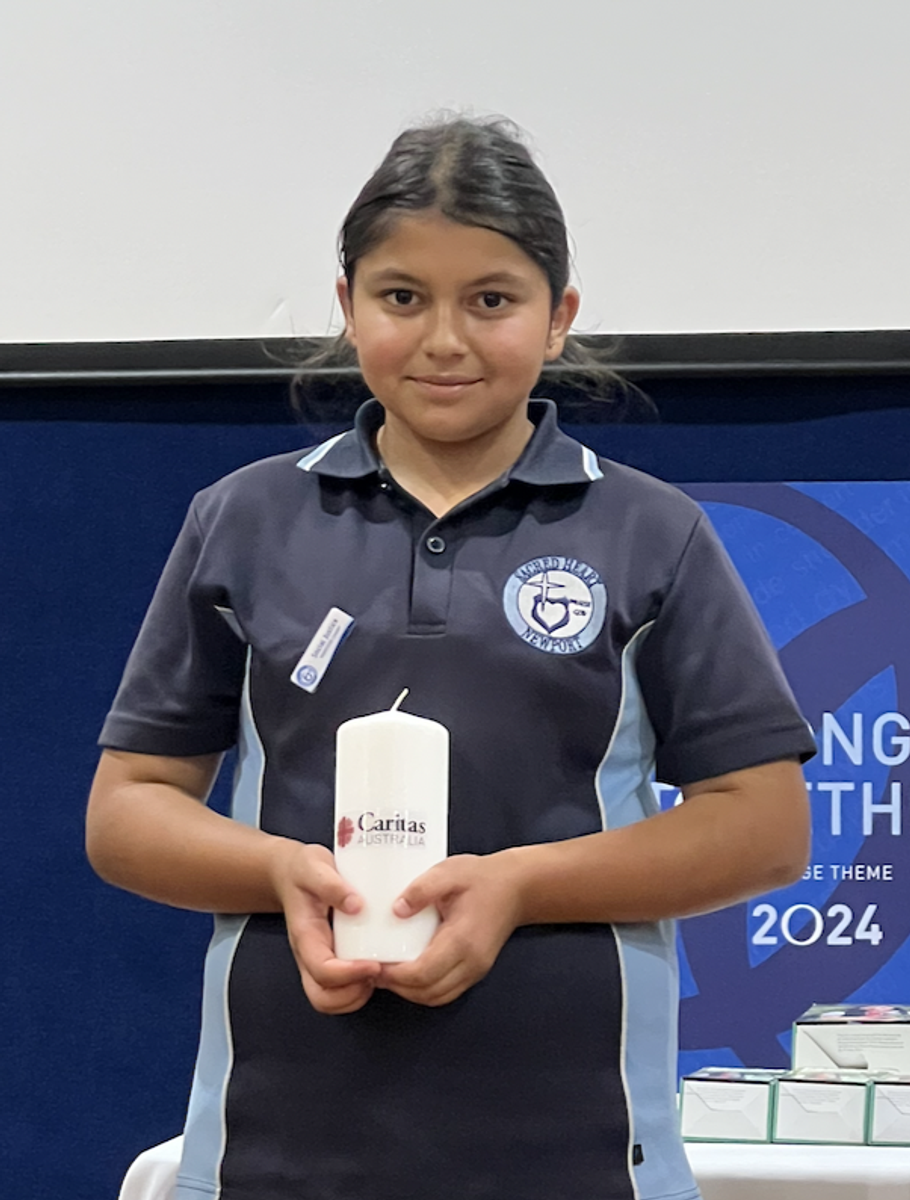



Cath Palmer
Learning and Teaching Leader
Faith Life Leader
cpalmer@shnewport.catholic.edu.au




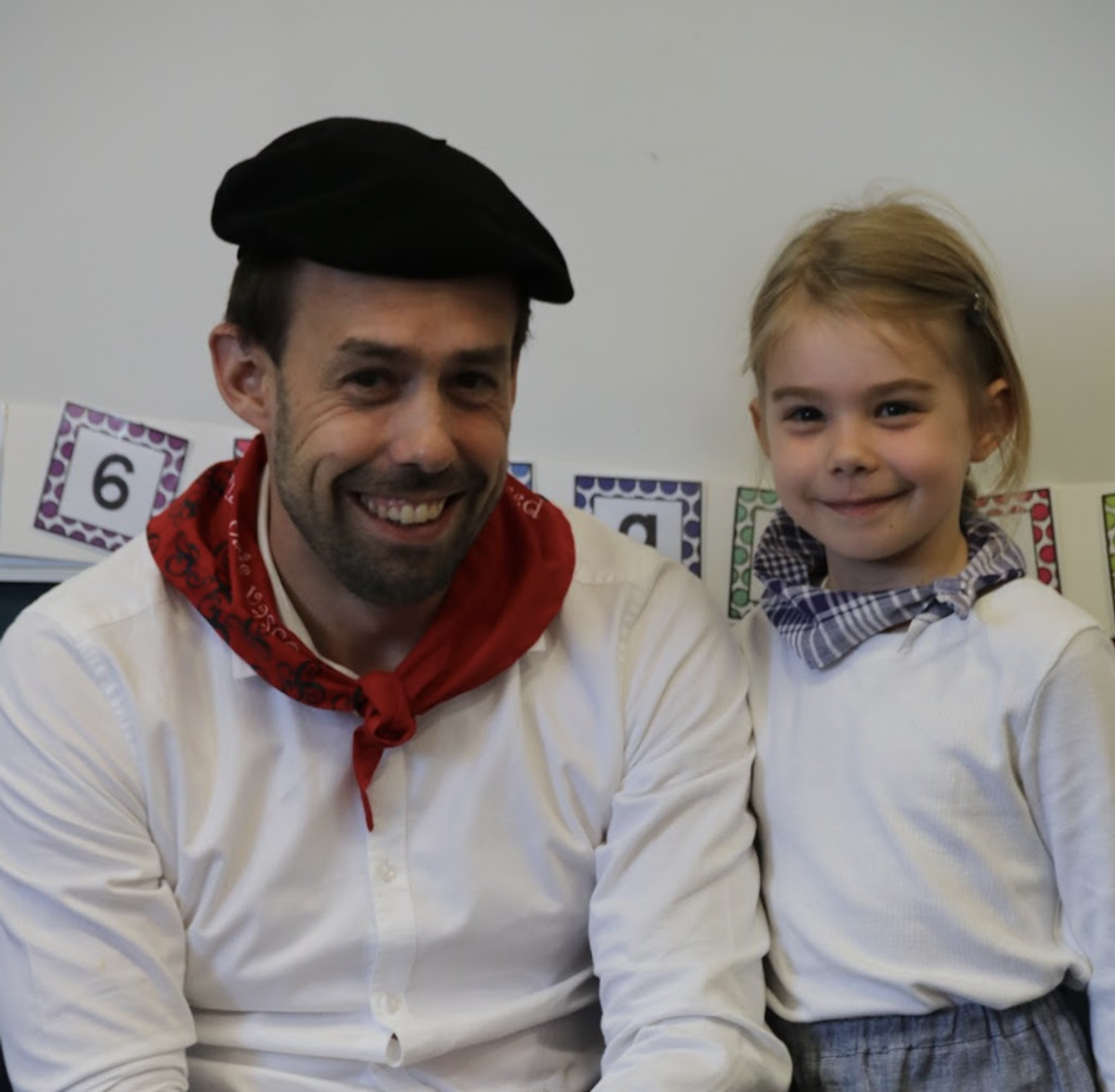





Our School will be celebrating Harmony Day on Thursday 21st March. The theme for Harmony Day this year is ‘Our Shared Stories-Celebrating Together.’
This theme encourages us to recognise, share and celebrate the beautiful stories within each family in our community.
In preparation for this special day, we ask that you spend time to share your family stories with your children. You might share stories using photos, maps, talking to grandparents etc. The stories you share may be about migration, your culture, your traditions or family celebrations.
During week 7, students will represent their family story through a medium such as clay, sculpture, paint in class. Students will then share these family stories on Harmony Day after the Harmony Day Parade.


Parents & Grandparents are invited to our Harmony Day Parade at 9am on Thursday 21st March. Students will be invited to dress in their cultural costumes/colours or the colour orange which represents Harmony.
Rosaria LaMotta & Cath Palmer
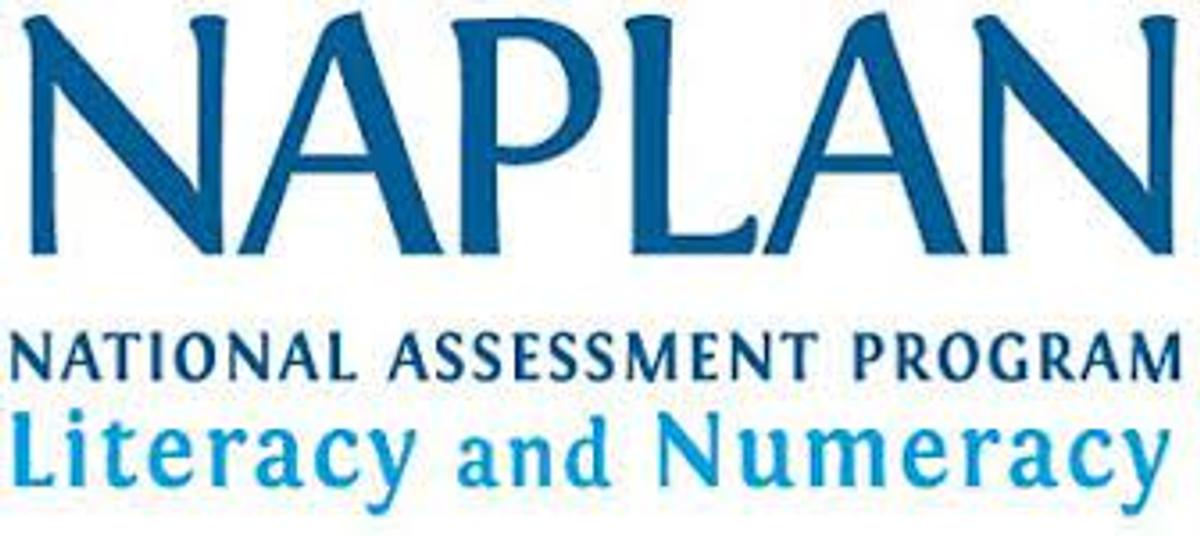

The National Assessment Program – Literacy and Numeracy (NAPLAN) for Years 3, 5, 7 and 9 students will be held in March this year. NAPLAN tests assess student knowledge and skills in Writing, Reading, Conventions of Language (spelling, grammar and punctuation) and Numeracy. The results of the tests provide information for students, parents, teachers and principals and can be used to improve student achievement.
The Year 3 and 5 students will be completing the NAPLAN Online test this term, from Wednesday 13 March to Monday 25 March 2024. NAPLAN has been completed in May in previous years, however moving NAPLAN to Term 1 means results will be available earlier and can be used to inform teaching and learning.
Students will complete an online practice test on Wednesday 6th March at 9:15am. This will provide an opportunity for students to become familiar with the types of questions contained in the test to ensure they are ready.
Sacred Heart NAPLAN Schedule
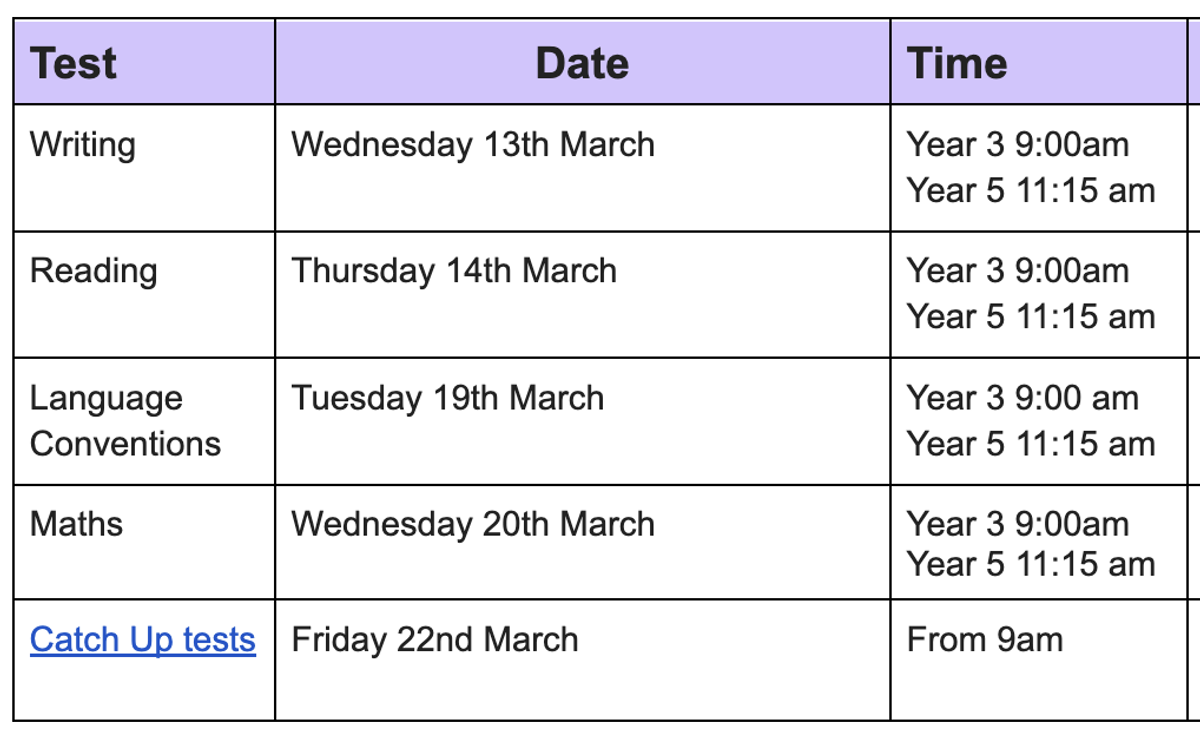

There has been much focus in the media over the past few years in relation to the most effective way to teach students. Recent advancements in neuroscience have provided valuable insights into how the brain learns. Research shows that every child's brain is unique and develops at its own pace, but there are common principles of learning that can guide educational practices. The teaching approach best supported by the evidence is explicit instruction of a well-sequenced, knowledge-focused curriculum. Some key features of explicit instruction include:
In light of this and with our students at the centre of all we do, we are implementing a program in our Foundation and Year 1 classrooms through MultiLit which is a research initiative of Macquarie University, Sydney. This research team has been researching how best to teach children to learn to read and more effective ways of managing children’s behaviour in the classroom. MultiLit has as its core belief the conviction that effective instruction is the key to growth in any area of the curriculum. In partnership with MultiLit, our aim is to bring about learning by whatever means scientific research has shown to be most effective. We subscribe to a continually evolving approach to literacy instruction, changing as more scientific evidence becomes available from either within the MultiLit research team or from the international scientific reading research community.
The program being implemented in Foundation and Year 1 is InitiaLit, an evidence-based whole-class literacy program providing all children with the essential core knowledge and strong foundations to become successful readers and writers. InitiaLit addresses reading, spelling and writing by:
•Actively teaching the relationships between sounds and letters
•Building vocabulary and comprehension skills through quality children’s books
•Giving children lots of practice in reading, handwriting, spelling and writing activities
Students will actively participate in InitiaLit sessions daily and these lessons comprise of three components:
On the mat (25-30 mins)
Small group and independent work (30-35 mins)
Shared storybook reading (15-20 mins)
This approach is highly monitored with regular progress and reviewing occurring to assess how students capabilities are developing. Teachers are already finding great benefit a\nd most importantly, our students are engaged, challenged and proud of the achievements they are making.
In Years 2 to 6, we are continuing to ensure we are delivering the most effective explicit instruction that is designed in a sequential, systematic way. Our programs targets the following five pillars;
Phonemic Awareness: the ability to hear, identify, and manipulate individual sounds (or phonemes) in spoken words. This skill is crucial because it forms the foundation for understanding how letters represent sounds in written language.
Phonics: the relationship between sounds and their corresponding letters. Phonics instruction teaches children the rules and patterns of these relationships, helping them decode words when reading and encode words when writing and spelling.
Fluency: the ability to read smoothly and accurately with appropriate expression. Fuency comes with practice and reading regularly helps children become more fluent readers over time.
Vocabulary: the set of words known by an individual. A rich vocabulary is essential for comprehension, as understanding the meanings of words allows children to make sense of what they're reading and to improve their writing.
Comprehension: the ultimate goal of reading. Comprehension involves understanding the meaning of text, making connections to prior knowledge, and drawing conclusions.
It has been a busy time getting back into a new school year and it has been wonderful to see our students having the opportunity to continue forward in their learning journey. Please do not hesitate to come and chat with your classroom teacher or myself if you have any questions.
If you have completed the Parent Helper’s training and would be willing to support the classrooms with this new approach we would be appreciative of your support. Please discuss a suitable time with your child’s teacher.
Sue Burke
English Leader
sburke@shnewport.catholic.edu.au